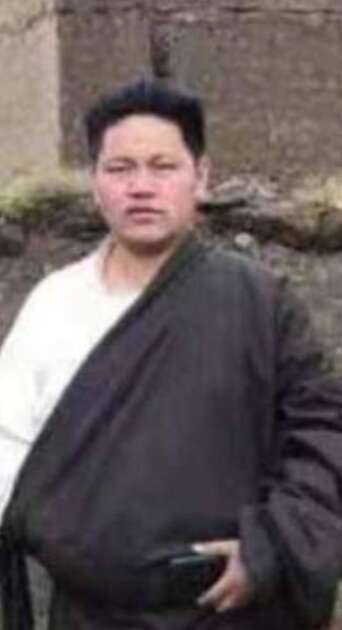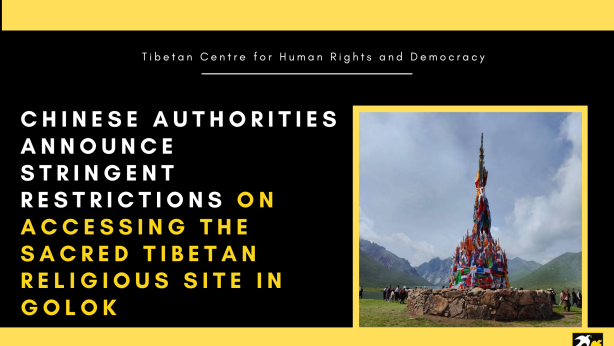Tibetan businessman detained incommunicado found to be sentenced to 2.5 years in prison

The Tibetan Centre for Human Rights and Democracy (TCHRD) has been informed about the sentencing of Mr Tenzin Tharpa to a fixed term imprisonment of two years and six months for helping local Tibetans send money to their family members and relatives in India.
In October 2020, Human Rights Watch reported on the detention of Mr Tharpa (alternatively spelled as Tarpa), 39, and his cousin Ms Lhamo, 36, in Diru (Ch: Biru) County in Nagchu (Ch: Naqu) City, Tibet Autonomous Region (TAR). Both had been detained in June 2020 and although Lhamo died in August that year due to custodial torture, Tharpa’s whereabouts and status remained unknown.
It has now come to light that Tharpa was sentenced to prison in a secret trial. He is due for release in December this year. His family was able to hire a Chinese lawyer but it could not ensure a fair trial for Tharpa, who continued to remain in undisclosed location without the knowledge of his family members.
To date, Chinese authorities have not carried out any investigation into the death of Lhamo, a mother of three. Local authorities quickly cremated her body to prevent autopsy and also denied her family members the right to conduct her funeral according to Tibetan Buddhist rites and rituals.
Both Lhamo and Tharpa had been detained on the charges of sending money to family members and relatives in India. Although it was common for Tibetans inside Tibet to send money to India for personal and spiritual reasons, it was only in recent years that local Chinese authorities began cracking down more severely on Tibetans maintaining any contacts with relatives living in exile, especially India.
Before his detention in Nagchu County town, Mr Tharpa was a businessman dealing in medicinal plants and other local products in Chaktse (Ch: Qiaze) Town in Diru. It was only after his family hired a Chinese lawyer that they were able to learn about his detention at an undisclosed location in Nagchu town.
Mr Tharpa is a former monk who had studied at the Larung Gar Buddhist Institute. In 2012, he had to disrobe and leave the institute after monks hailing from TAR were banned from studying in Tibetan monastic institutions outside TAR such as Kardze Tibetan Autonomous Prefecture where the famed institute was located. Upon his return to Diru, he founded a school for local Tibetan children but Chinese authorities shut it down. He had since come under the surveillance of Chinese authorities. In 2014, he started the successful business of dealing in medicinal plants such as the prized Yartsa Gunbu (caterpillar fungus).
Tibetans inside Tibet are now finding it almost impossible to help pay for the education of their loved ones including students and monks pursuing higher studies in India. Some Tibetan university students had to discontinue their education because Chinese authorities had banned their parents from sending money. Many Tibetans hailing from Diru and the neighboring Sog (Ch: Suo) County, who now live in India, have not been able to speak to their family members and relatives in Tibet at least since 2016.
On the other hand, Tibetans inside Tibet who wish to offer prayers for their deceased family members or relatives by sending money to Tibetan spiritual teachers living in India have not been able to do so for many years.
In 2014, Chinese authorities in Diru have implemented a regulation that explicitly prohibited local Tibetans from maintaining any contacts with Tibetan exiles in India or face severe reprisals among which was the cancellation of government subsidies. Although termed as temporary, the provisions of the regulation have now become an entrenched part of the state repression machinery in Diru.
The severe government reprisals have pushed many Tibetans toward self-censorship, which has become a mandatory quality of daily life in Tibet including cutting ties with loved ones for one’s own safety. As TCHRD’s 2020 report on censorship and surveillance found, such self-censorship is indicative of a systemic abuse of human rights, to the point that people are afraid to contact their own family even for something as simple as saying hello.


